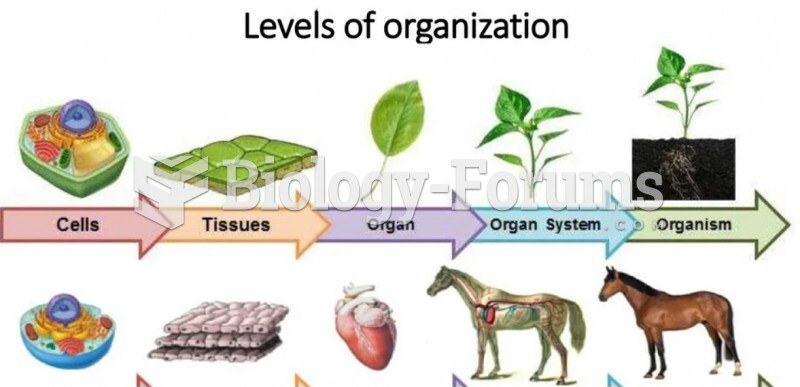|
|
|
Chronic marijuana use can damage the white blood cells and reduce the immune system's ability to respond to disease by as much as 40%. Without a strong immune system, the body is vulnerable to all kinds of degenerative and infectious diseases.
Signs of depression include feeling sad most of the time for 2 weeks or longer; loss of interest in things normally enjoyed; lack of energy; sleep and appetite disturbances; weight changes; feelings of hopelessness, helplessness, or worthlessness; an inability to make decisions; and thoughts of death and suicide.
Cyanide works by making the human body unable to use oxygen.
Parkinson's disease is both chronic and progressive. This means that it persists over a long period of time and that its symptoms grow worse over time.
Street names for barbiturates include reds, red devils, yellow jackets, blue heavens, Christmas trees, and rainbows. They are commonly referred to as downers.
 Determination of the complete genome sequence of Haemophilus influenzae by Venter, Smith, and collea
Determination of the complete genome sequence of Haemophilus influenzae by Venter, Smith, and collea
 A complete cranium of Au. Afarensis from Hadar, Ethiopia, shows a prognathic face and a small brainc
A complete cranium of Au. Afarensis from Hadar, Ethiopia, shows a prognathic face and a small brainc





